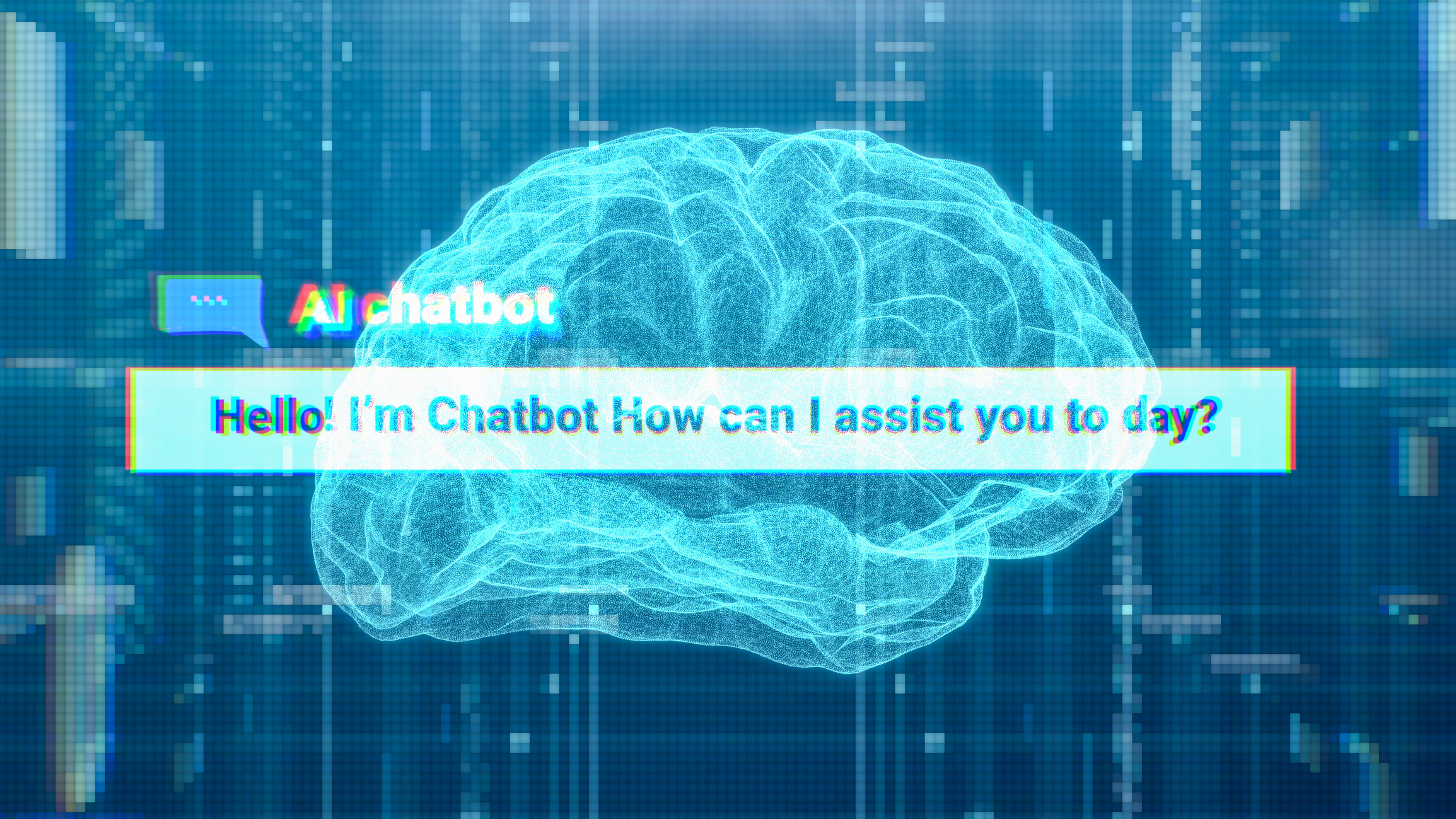AI ChatBots Create Risks, Frustration for Bank Customers, Report Says
As AI chatbot usage rises among banks, risks to consumers rise as well, according to a CFPB report.


Profit and prosper with the best of Kiplinger's advice on investing, taxes, retirement, personal finance and much more. Delivered daily. Enter your email in the box and click Sign Me Up.
You are now subscribed
Your newsletter sign-up was successful
Want to add more newsletters?

Delivered daily
Kiplinger Today
Profit and prosper with the best of Kiplinger's advice on investing, taxes, retirement, personal finance and much more delivered daily. Smart money moves start here.

Sent five days a week
Kiplinger A Step Ahead
Get practical help to make better financial decisions in your everyday life, from spending to savings on top deals.

Delivered daily
Kiplinger Closing Bell
Get today's biggest financial and investing headlines delivered to your inbox every day the U.S. stock market is open.

Sent twice a week
Kiplinger Adviser Intel
Financial pros across the country share best practices and fresh tactics to preserve and grow your wealth.

Delivered weekly
Kiplinger Tax Tips
Trim your federal and state tax bills with practical tax-planning and tax-cutting strategies.

Sent twice a week
Kiplinger Retirement Tips
Your twice-a-week guide to planning and enjoying a financially secure and richly rewarding retirement

Sent bimonthly.
Kiplinger Adviser Angle
Insights for advisers, wealth managers and other financial professionals.

Sent twice a week
Kiplinger Investing Weekly
Your twice-a-week roundup of promising stocks, funds, companies and industries you should consider, ones you should avoid, and why.

Sent weekly for six weeks
Kiplinger Invest for Retirement
Your step-by-step six-part series on how to invest for retirement, from devising a successful strategy to exactly which investments to choose.
Many banks are introducing AI chatbots built to simulate humanlike responses, primarily to help cut the costs of human customer service agents. A new report from the Consumer Financial Protection Bureau (CFPB) raises red flags about how poorly implemented chatbots can create customer frustration, reduced trust, and even violations of the law.
Bank AI chatbots: The state of play
An estimated 37% of the U.S. population interacted with a bank’s chatbot in 2022, with that number only projected to grow in coming years. According to the CFPB report, the 10 biggest banks all use various types of chatbots to help consumers pay bills, check account balances, review transactions, and more.
The banking industry relies mostly on basic chatbots that send customers to preset, limited responses or route customers to Frequently Asked Questions (FAQs) pages. This setup can keep customers stuck in frustrating loops, as evidenced by the many complaints the CFPB has received from customers unable to access timely, straightforward answers.
From just $107.88 $24.99 for Kiplinger Personal Finance
Become a smarter, better informed investor. Subscribe from just $107.88 $24.99, plus get up to 4 Special Issues

Sign up for Kiplinger’s Free Newsletters
Profit and prosper with the best of expert advice on investing, taxes, retirement, personal finance and more - straight to your e-mail.
Profit and prosper with the best of expert advice - straight to your e-mail.
Some banks have their own custom chatbots — like Bank of America’s "Erica" — that use real customer conversations for training. The banking industry has recently started using more advanced technology, like generative chatbots, to boost customer service functions. This could be seen as a way to alleviate customer frustrations or further pare back live customer service agents — or perhaps both.
Good for banks, not so much for customers
CFPB reviewed the current landscape of bank chatbots and found several major areas of concern. The agency recommends that banks avoid using chatbots as their primary customer service channel when it's clear they can't keep up with the average request. Across the CFPB report, the following risks stand out:
Unnecessary customer fees and bad information
Chatbots have the potential to provide incomplete or incorrect information in response to consumer inquiries, without the accountability of human customer service training. This dynamic could drive consumers to miss payments or select banking products that don't fit their lifestyle, leading to unnecessary financial problems and fees.
Technical failures
Like other technology, chatbots are vulnerable to crashes. Banks that double down on chatbots as the primary contact avenue are potentially chaining their customers to balky programs without the backup capacity of a team of customer service personnel. Whether it's a software issue, server issue, or some other unexpected crash, the bottom line is a failed communication channel that frustrates customers.
Lower trust and customer service capacity
Bank customers who contact customer support often need immediate assistance with urgent payments or account problems. AI chatbots can divert consumers in need into endless loops of preprogrammed responses, with limited or nonexistent ability to access human help to escalate problems. This can cause additional stress and financial repercussions in time-sensitive situations, slowly undermining trust in their bank long-term.
Breaking federal consumer protection laws
Chatbots run a higher risk of violating consumers' federal rights through their automated nature, which can preclude detailed knowledge of consumer protection laws. These breaches can range from providing inaccurate data on consumer remedies to exposing consumer privacy and data through insufficient controls.
The bottom line
Bank customers will encounter more and more chatbots over time, as financial institutions move to automate customer service to achieve various business goals.
Banks would do well to balance their drive for efficiency and cost savings against the risk of alienating their customers and breaking federal laws.
Meanwhile, customers should keep in mind the importance of protecting their privacy and data and not just settling for poor customer service. There are plenty of well-respected banks out there that would love to have your business.
Even if you can't escape chatbots entirely, you can at least switch to a high-yield savings account that pays 475 times more interest than traditional major banks.
Related Content
Profit and prosper with the best of Kiplinger's advice on investing, taxes, retirement, personal finance and much more. Delivered daily. Enter your email in the box and click Sign Me Up.

Ben Demers manages digital content and engagement at Kiplinger, informing readers through a range of personal finance articles, e-newsletters, social media, syndicated content, and videos. He is passionate about helping people lead their best lives through sound financial behavior, particularly saving money at home and avoiding scams and identity theft. Ben graduated with an M.P.S. from Georgetown University and a B.A. from Vassar College. He joined Kiplinger in May 2017.
-
 Quiz: Do You Know How to Avoid the "Medigap Trap?"
Quiz: Do You Know How to Avoid the "Medigap Trap?"Quiz Test your basic knowledge of the "Medigap Trap" in our quick quiz.
-
 5 Top Tax-Efficient Mutual Funds for Smarter Investing
5 Top Tax-Efficient Mutual Funds for Smarter InvestingMutual funds are many things, but "tax-friendly" usually isn't one of them. These are the exceptions.
-
 AI Sparks Existential Crisis for Software Stocks
AI Sparks Existential Crisis for Software StocksThe Kiplinger Letter Fears that SaaS subscription software could be rendered obsolete by artificial intelligence make investors jittery.